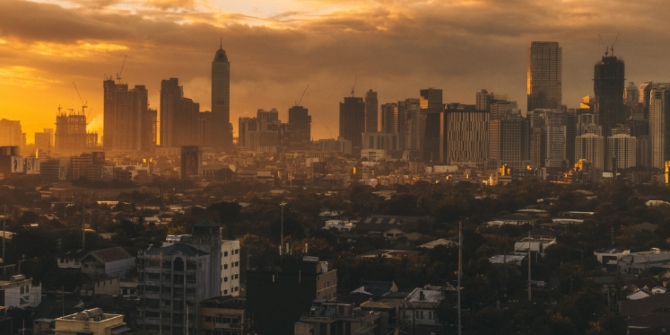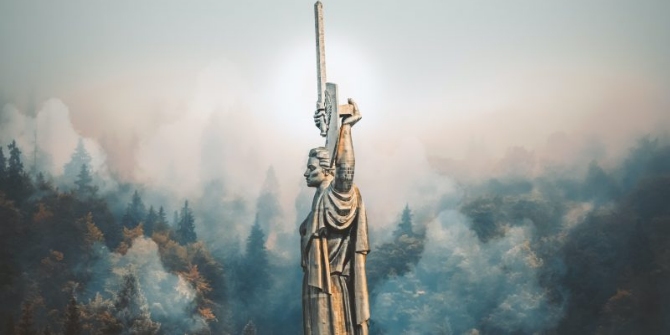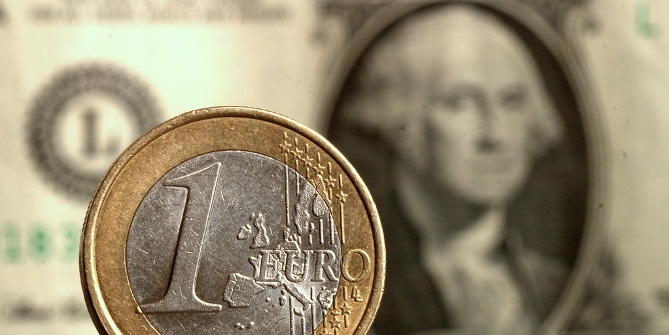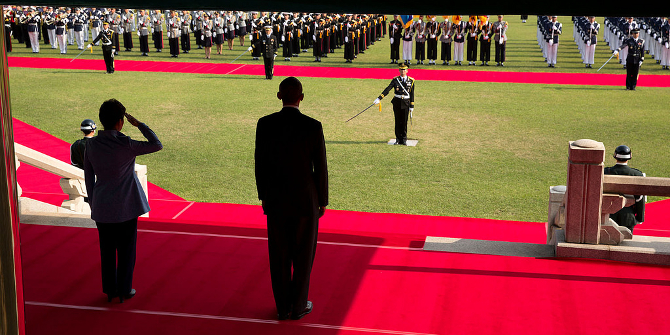Following three years of sanctions against the regime of President Nicolás Maduro, the US government granted a license to Chevron to drill and export oil from Venezuela. Rossina Ruano writes that while this may be a big step for the country’s troubled economy, it still faces a migration crisis that has seen millions of Venezuelans flee the country to Latin American neighbors.
Venezuela is facing a political crisis that has led to significant economic problems. Inflation, political unrest, and international isolation have led to a dramatic rise in poverty and emigration for Venezuelan citizens. Under President Maduro and what some have termed is an authoritarian dictatorship, Venezuela is experiencing one of history’s worst economic depressions and Latin America’s worst migration crises. Although the country has the largest proven oil reserves in the world, and most of the country’s economy is based on petroleum, making it the world’s 25th largest oil producer, the regime makes it harder for other business to survive.
However, the growing conflict in the Middle East and the Russian invasion of Ukraine has compelled the United States to start loosening their restrictions and sanctions on Venezuelan oil. Chevron, which is one the leading oil companies has resumed business in Venezuela after Biden granted Chevron Corp a license for producing oil. Talks between the United States and Venezuela began in March 2022, as President Biden plans for alternatives to Russian oil and weakening Russia’s economy as the war with Ukraine continues. This is an attempt to punish and hold countries such as Venezuela and Russia accountable for their human rights violations. In a statement last November, the US Department of the Treasury said that Chevron had been granted a license to help “alleviate the suffering of the Venezuelan people and support the restoration of democracy”. This power dynamic is integrated with the political and economic systems of non-western countries.

“US Intervention in Venezuela Pro and Ant” (CC BY-NC-ND 2.0) by Susan Melkisethian
Venezuela re-enters the international oil market
Chevron is one of the leading private oil companies in Venezuela and their relationship dates to the 1920s. In 2019, the US placed sanctions on Venezuela causing Chevron to halt their oil production. The new six-month license, granted by the Biden administration in November 2022, through the US Office of Foreign Assets Control (OFAC) authorizes drilling in existing oil fields and for repair and maintenance. Currently, Chevron has four joint-venture operations with the state-owned oil and natural gas company, Petróleos de Venezuela (PDVSA), which the license grants them to continue working on. A condition of the license is that Chevron cannot conduct any transactions with entities in Venezuela that are owned by Iran or Russia.
It is interesting to note that PDVSA will not receive profits from these future sales and instead the proceeds with go towards repaying the debt Venezuela owes Chevron. Additionally, the United States has the authority to amend or revoke authorizations should the negotiation not follow what was agreed upon in good faith-support of the people of Venezuela. This is a big step for Venezuela’s economy, which President Maduro is currently working to improve. It also means that Venezuela is re-entering the international oil market.
This is hopefully a step in the right direction to improve the migration crisis that Venezuela is experiencing, with a record number arriving at the US border. Thus far, almost a quarter of the population has fled the country. However, President Maduro is hoping that the lifting of sanctions will guarantee his re-election in 2024. Yet, the United States and some allies view the “Interim President” Juan Guaidó as the country’s legitimate leader. However, the maximum pressure approach, first applied under the Trump administration that consisted of additional economic sanctions, threats of military force, and political pressure have been unsuccessful. Instead, it has led to impoverishment and new left-leaning governments of Latin America are showing less polarization and critique while being more sympathetic to the Maduro government.
The migration crisis and prospects for reforms
A migration crisis brings costs of integration, potential economic gains, and needed continued support. When Venezuela’s economy began to decline, many Latin American countries were able to provide support in the form of access to humanitarian assistance, visa waivers, mobility cards, and integration into the labor market. As migrants join the labor force, there is an increase in economic activity and expanded tax base, meaning the cost of integration will narrow. Additionally, Venezuela’s out-migration has the potential to increase their host countries’ GDP by up to 4.5 percent by 2030. Columbia, Chile, Ecuador, and Peru have been integrating the largest number of migrants from Venezuela and this may benefit their own economic activity. However, in recent years, a shift in policies has made it harder for Venezuelans, resulting in migrants facing harsher conditions and additional violence. Migrants are forced to flee and often travel by foot, exposing women and children to violence including rape and sex and labor trafficking.
Yet, as President Maduro has allowed for some involvement of UN agencies, there are still restrictions and lack of cooperation. Thus far there have been no reforms to the judicial system and Venezuelan law enforcement that would make it possible for the International Criminal Court (ICC) to proceed with bringing human rights violations charges against Venezuela’s authorities. Instead, President Maduro has been insisting on the return of assets located in the United States, Colombia, and the UK. The next six months may see amendments to the license issued by the United States. It is also possible that other countries will loosen their sanctions on Venezuela leading to a strong improvement of their economy. As the 2024 election approaches, President Maduro will look to both to secure re-election and improvement of the economy.
Please read our comments policy before commenting.
Note: This article gives the views of the author, and not the position of USAPP– American Politics and Policy, nor of the London School of Economics.
Shortened URL for this post: https://bit.ly/3ZrC6jg






